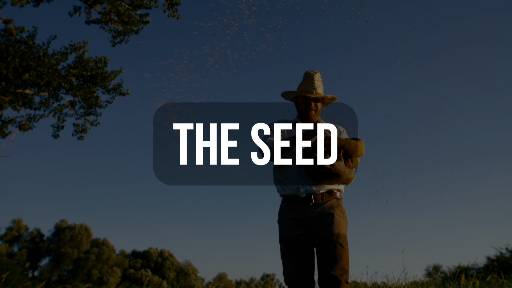-
The Perceptive Art Of A Receptive Heart Series
Contributed by David Dykes on Jan 24, 2018 (message contributor)
Summary: What's the main difference between the people who have hard hearts, shallow hearts, crowded hearts, and the one who has an open heart? The person with the open heart hears it and does it.
INTRODUCTION
Here’s Bob and here’s Jerry. They’re both in Celebration Worship at Green Acres listening to the Pastor. They’ve both been Christians for over twenty years. But there’s a big difference between Bob and Jerry. During the message, Bob has his Bible open and he’s taking notes. He occasionally nods his head in agreement and even let’s out an “amen” a few times. He is totally engaged in hearing God’s Word.
However, one row in front of Bob, Jerry is sitting there and he’s nodding, but it’s not in agreement. He can hardly keep his eyes open. He didn’t bring a Bible and he’s not taking any notes. Instead he’s looking at his watch, and wondering when this will be over and he can leave for lunch. He’s so bored he starts counting how many lights are in the ceiling or how many people in the choir have glasses. He’s out of it.
Bob and Jerry are listening to the same message from the same Pastor. What’s the difference? Jesus gives the answer in our passage.
Here’s another example. Over in Crosswalk Worship, there are two girls, Jessica and Amanda. They’re both going into their senior year in high school. They grew up in Green Acres and were baptized the same year. Jessica has her smartphone out, and she is reading the text the pastor is using. She is using her Bible app to access the live feature on YouVersion, so she is following the outline from the message from God’s Word. Jessica knows her senior year is going to be full of important decisions, so she is asking God to give her wisdom and direction. She’s sitting on the figurative edge of her seat wanting to hear a Word from God.
Meanwhile, three seats down, Amanda has her smartphone out also, but she isn’t using a Bible app. She is busy texting her friends and checking their latest posts on Instagram, Snapchat, or Vine. She is aware there is a speaker sharing a message from the Bible on the big screen, but she’s really not listening. They are both hearing the same message, but one is engaged and the other is distracted and bored. So, how do you explain the difference between Jessica and Amanda? Jesus gives us the answer in one of His most famous parables. It’s often called the Parable of the Sower, but it is really the Parable about Receiving the Word of God.
Mark 4:1-20. “Again Jesus began to teach by the lake. The crowd that gathered around him was so large that he got into a boat and sat in it out on the lake, while all the people were along the shore at the water’s edge. He taught them many things by parables, and in his teaching said: ‘Listen! A farmer went out to sow his seed. As he was scattering the seed, some fell along the path, and the birds came and ate it up. Some fell on rocky places, where it did not have much soil. It sprang up quickly, because the soil was shallow. But when the sun came up, the plants were scorched, and they withered because they had no root. Other seed fell among thorns, which grew up and choked the plants, so that they did not bear grain. Still other seed fell on good soil. It came up, grew and produced a crop, multiplying thirty, sixty, or even a hundred times.’”
“Then Jesus said, ‘He who has ears to hear, let him hear.’ When he was alone, the Twelve and the others around him asked him about the parables. He told them, ‘The secret of the kingdom of God has been given to you. But to those on the outside everything is said in parables so that, ‘they may be ever seeing but never perceiving, and ever hearing but never understanding; otherwise they might turn and be forgiven!’”
“Then Jesus said to them, ‘Don’t you understand this parable? How then will you understand any parable? The farmer sows the word. Some people are like seed along the path, where the word is sown. As soon as they hear it, Satan comes and takes away the word that was sown in them. Others, like seed sown on rocky places, hear the word and at once receive it with joy. But since they have no root, they last only a short time. When trouble or persecution comes because of the word, they quickly fall away. Still others, like seed sown among thorns, hear the word; but the worries of this life, the deceitfulness of wealth and the desires for other things come in and choke the word, making it unfruitful. Others, like seed sown on good soil, hear the word, accept it, and produce a crop—thirty, sixty or even a hundred times what was sown.”

 Sermon Central
Sermon Central



